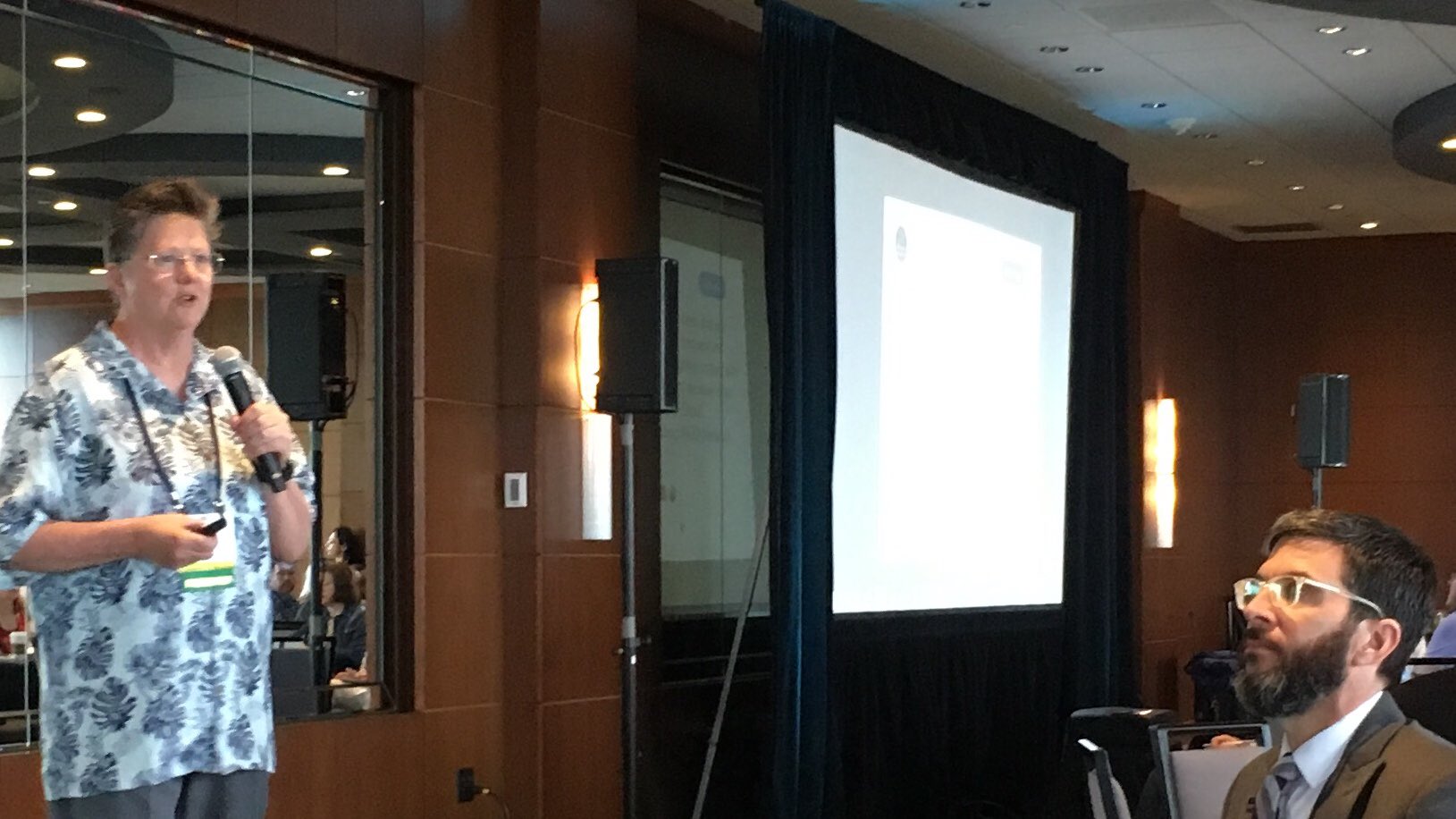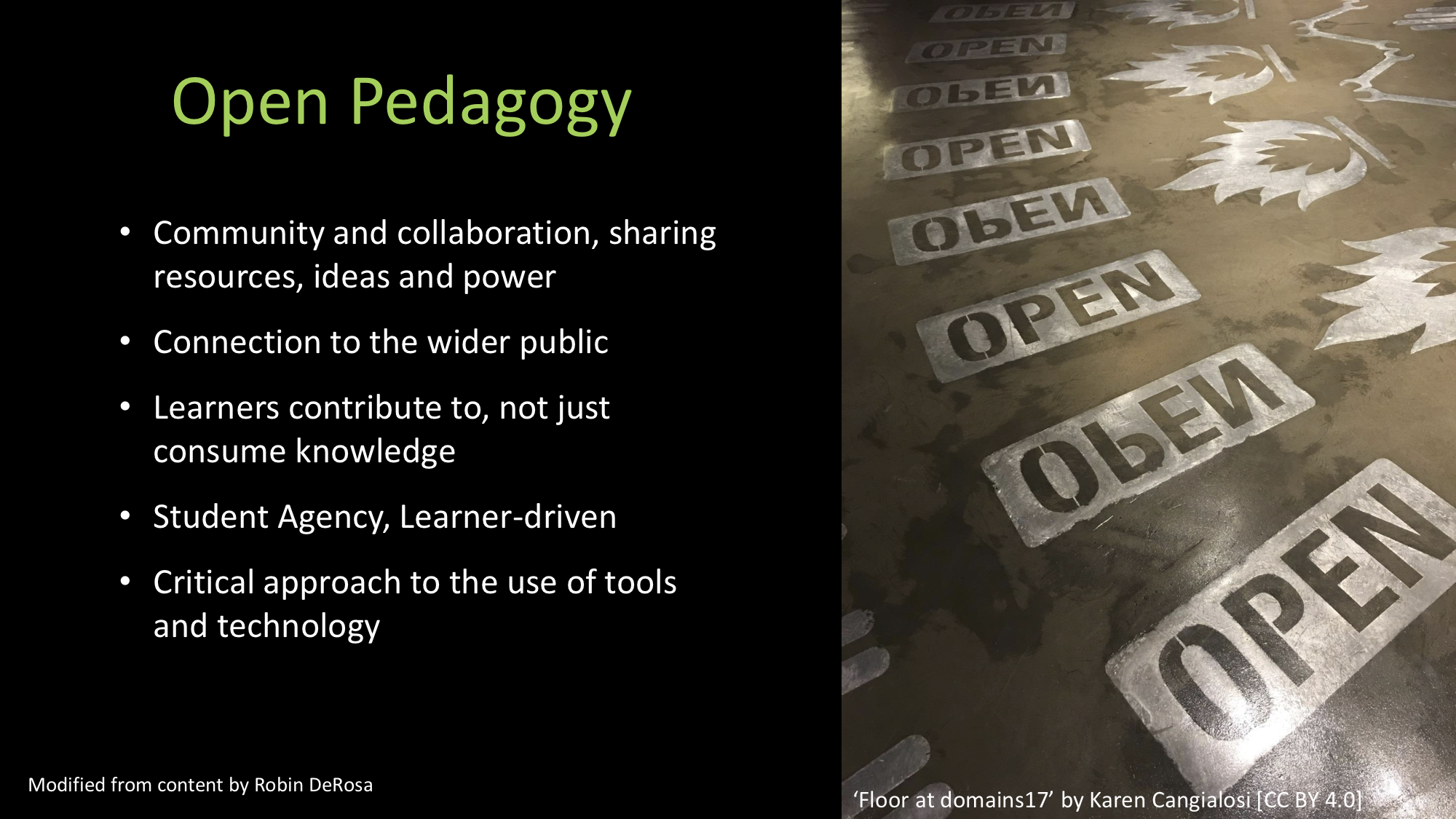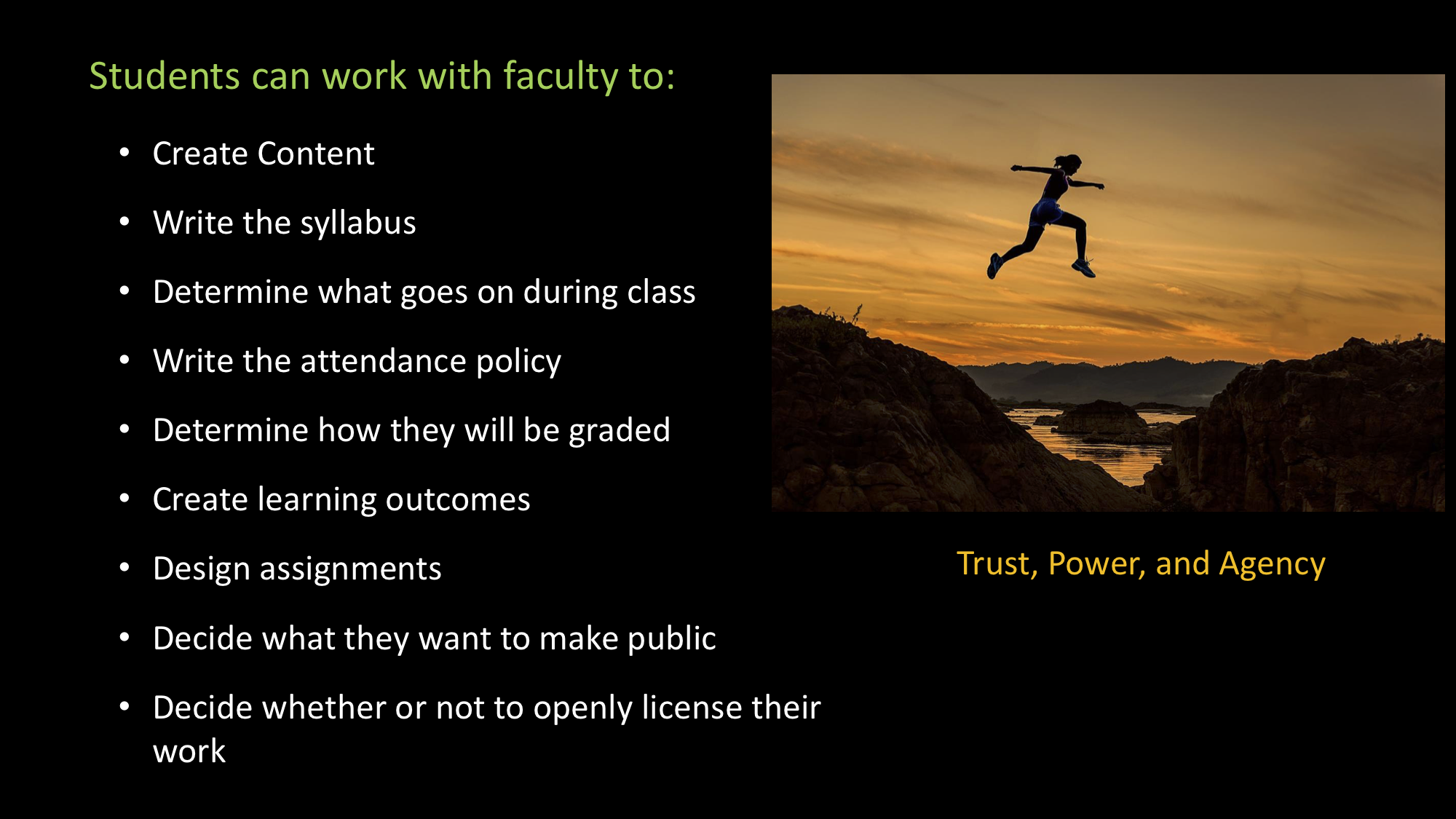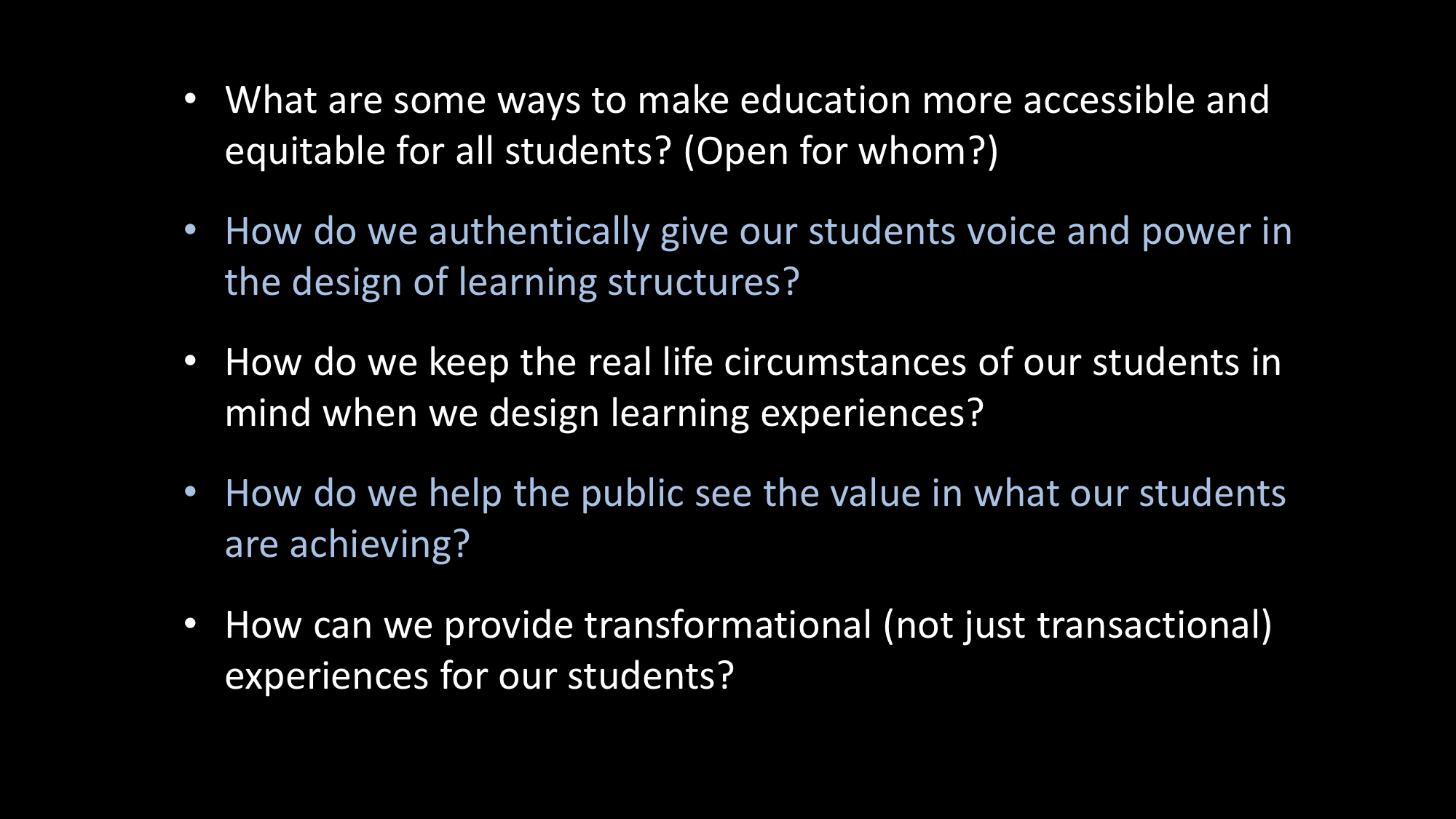I just attended Achieving the Dream’s first Teaching and Learning Summit in Minneapolis, Minnesota, USA. The Summit had four tracks, each focused on a specific domain of teaching and learning:
- Open Educational Resources: Beyond Cost
- Guided Pathways: Ensuring Students Are Learning
- Culturally Responsive Practices: Leveraging Knowledge for Equity
- Adaptive Courseware for Early Success
I participated in the adaptive courseware track — guided by participants from Every Learner Everywhere — where I collaborated with the good folks at Houston Community College and other community colleges in Florida, Ohio, and Texas that are adopting adaptive learning platforms to improve student success.
The buzz at plenary sessions and mealtimes convinced me that participants in every track were as deeply engaged in the practical details of transforming teaching and learning as we were in the adaptive learning track. We had an incredibly productive couple of days together, making connections across disciplines and geographies to see how we might implement adaptive learning tools for various courses. These adaptive tools promise to enable students to take personalized learning pathways for knowledge and comprehension — speeding past what they already know and identifying where they might focus — while also enabling teachers to spend more time on higher-level, active learning, helping students apply, analyze and synthesize concepts.
Enter Karen
After all that wide-ranging, hands on work, the highlight of the gathering for me was when participants from all four tracks came together for a closing, plenary keynote from Karen Cangialosi on open pedagogy. Karen gave us all a truly remarkable experience.

The evening before, I’d been a part of a spirited discussion with Karen, Alyson Indrunas, and Richard Sebastian, where we were debating the balance between the warranted critique many of us share about what might be called the “education industrial complex” — that privileges profits over student success — and the positive energy we work to convey to others to expand the community of educators who privilege student learning.
Karen’s keynote struck exactly the right balance: overwhelmingly positive inspiration and practical advice with just the right amount of reflection to help new folks and veterans alike maintain the critical distance we should always bring to anything we do. You can access all Karen’s slides online, as well as her collections of open pedagogy resources and links. The talk wasn’t recorded, but you can always soak up more of Karen’s goodness by following her on Twitter…or invite her to speak at your own event.
Open pedagogy as Karen describes it is a constellation of crucial practices under the wider umbrella I’ve been calling “opening knowledge practices“: empowering people to have greater agency in their lives to build a better life for everyone through our mutual engagement in acquiring, generating and sharing knowledge.
What is open pedagogy?
Karen describes open pedagogy as a rethinking of education to position students as full contributors to teaching and learning, emphasizing:

- Community and collaboration, sharing resources, ideas and power
- Connections to wider publics
- Learners contributing to, not just consuming knowledge
- Student agency, learner-driven
- Critical approaches to the use of tools and technology
What can students do?
Karen showed many examples of how students can contribute to educational activity, including:

- Create content
- Write the syllabus
- Determine what goes on during class
- Write the attendance policy
- Determine how they will be graded
- Create learning outcomes
- Design assignments
- Decide what they want to make public
- Decide whether or not to openly license their work
Questions to inspire open pedagogy
Karen highlighted some crucial questions educators can be asking ourselves to help us think through how we can best engage students directly in teaching and learning:

- What are some ways to make education more accessible and equitable for all students? (Open for whom?)
- How do we authentically give our students voice and power in the design of learning structures?
- How do we keep the real life circumstances of our students in mind when we design learning experiences?
- How do we help the public see the value in what our students are achieving?
- How can we provide transformational (not just transactional) experiences for our students?
Oh, I hope “adaptive” has gotten better. If not, it’s one of those things to be guarded about. At least in math, I’ve only seen slightly glorified drill and practice. I did a review of Mathia X and while they have a new version, I have no reason to believe the structure has changed. https://resourceroomblog.wordpress.com/2016/06/08/mathia-x-review/
When I keep asking “where’s the conceptual learning?” I eventually get to “oh, if they do the procedures enough, the concepts come!” and unfortunately that’s simply not true ( per https://www.carnegiefoundation.org/wp-content/uploads/2013/05/stigler_dev-math.pdf amoung many others — yes, that’s a *carnegie* address too…)
See the conversation Susan and I had about this on Twitter: